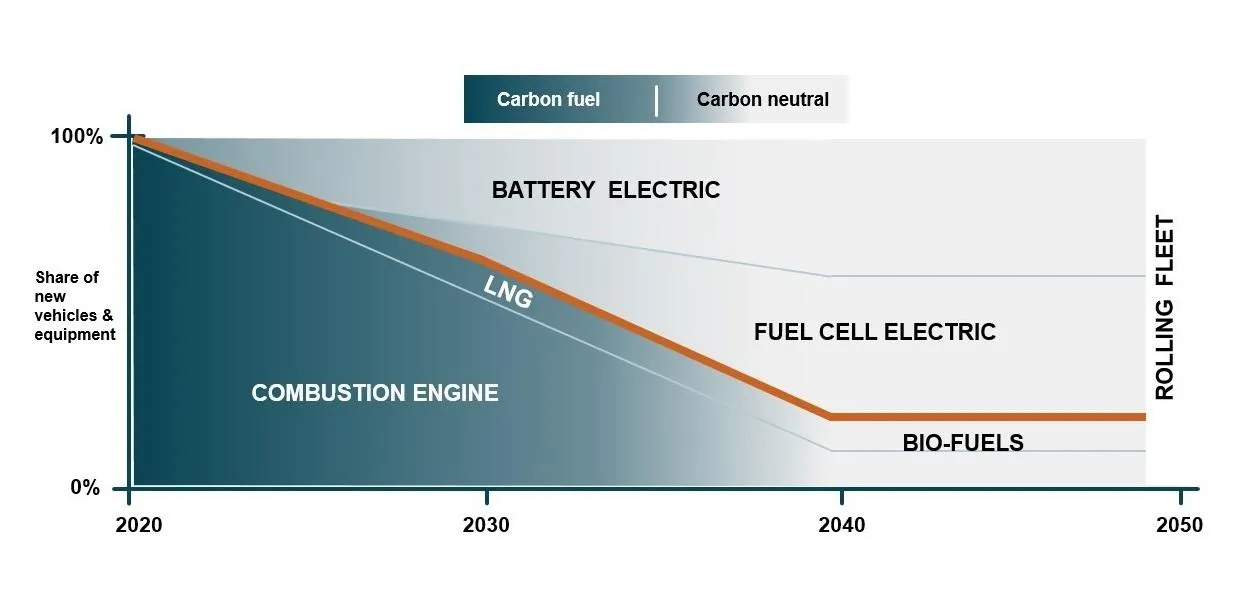A NEW report revealed by the European Commission says that increasing the share of fuel used in transport beyond
5.6% could cause more harm than benefit to the environment. At the end of 2008 the EU agreed to set a target of 10% of transport fuel coming from renewable sources such as biofuels as well as hydrogen and ‘green’ electricity by 2020. The agreement also included a requirement that all new energy sources be sustainable, setting sustainability criteria for biofuels, and is this last point that is p
July 3, 2012
Read time: 3 mins
A NEW report revealed by the 2465 European Commission says that increasing the share of fuel used in transport beyond
5.6% could cause more harm than benefit to the environment.
At the end of 2008 the EU agreed to set a target of 10% of transport fuel coming from renewable sources such as biofuels as well as hydrogen and ‘green’ electricity by 2020. The agreement also included a requirement that all new energy sources be sustainable, setting sustainability criteria for biofuels, and is this last point that is proving troublesome.
Under the agreement biofuels are required to offer at least 35% carbon emission savings compared to fossil fuels at present. The figure rises to 50% by 2017 and 60% by 2018. But there are widespread concerns that biofuel production will impact on the food chain, raising prices for foodstuffs substantially. There are also major concerns that biofuel production is being carried out in developing nations and is linked to the deforestation of rainforest areas or that it threatens other sensitive areas, causing greater damage than good overall.
The report was drawn up for the Commission by the International Food Policy Institute (IFPRI) and says that indirect land-use change can
cause issues for the environmental sustainability of biofuels.
However, the report also says that current EU renewable energy targets are sufficiently small to safeguard the environmental sustainability of biofuels.
As the3287 EU's Renewable Energies Directive requires a 10% share of renewable energy sources in transport fuels by 2020, the report assumes that only 5.6% of this would come from firstgeneration biofuels.
Some experts point out that the other options, including electric cars and secondgeneration biofuels produced from waste and non-food crops, will not be widely available by 2020. As a result these experts are concerned that more than 5.6% of the renewable energy sources for transport would come from first-generation biofuels, boosting food prices and resulting in further harm to endangered habitats.
Biofuels produced from palm oil in parts of Asia such as Indonesia and West African nations such as Nigeria have been criticised for their links with uncontrolled and illegal deforestation of tropical hardwoods that take many hundreds of years to grow back. But according to data compiled by the European Biodiesel Board (EEB), the biofuel industry used only around 4.5% of palm oil imports in 2008. Meanwhile the Brazilian Sugarcane Industry Association (Unica) has commented that the report shows that Brazilian sugarcane ethanol production will have minimal impact on food prices and provides major cuts in greenhouse gas emissions. Further research is needed into the biofuel sector but until dependable second generation biofuel sources can be developed from waste materials such as woodpulp from papermaking, questions remain about the true benefits of first generation fuels.
5.6% could cause more harm than benefit to the environment.
At the end of 2008 the EU agreed to set a target of 10% of transport fuel coming from renewable sources such as biofuels as well as hydrogen and ‘green’ electricity by 2020. The agreement also included a requirement that all new energy sources be sustainable, setting sustainability criteria for biofuels, and is this last point that is proving troublesome.
Under the agreement biofuels are required to offer at least 35% carbon emission savings compared to fossil fuels at present. The figure rises to 50% by 2017 and 60% by 2018. But there are widespread concerns that biofuel production will impact on the food chain, raising prices for foodstuffs substantially. There are also major concerns that biofuel production is being carried out in developing nations and is linked to the deforestation of rainforest areas or that it threatens other sensitive areas, causing greater damage than good overall.
The report was drawn up for the Commission by the International Food Policy Institute (IFPRI) and says that indirect land-use change can
cause issues for the environmental sustainability of biofuels.
However, the report also says that current EU renewable energy targets are sufficiently small to safeguard the environmental sustainability of biofuels.
As the
Some experts point out that the other options, including electric cars and secondgeneration biofuels produced from waste and non-food crops, will not be widely available by 2020. As a result these experts are concerned that more than 5.6% of the renewable energy sources for transport would come from first-generation biofuels, boosting food prices and resulting in further harm to endangered habitats.
Biofuels produced from palm oil in parts of Asia such as Indonesia and West African nations such as Nigeria have been criticised for their links with uncontrolled and illegal deforestation of tropical hardwoods that take many hundreds of years to grow back. But according to data compiled by the European Biodiesel Board (EEB), the biofuel industry used only around 4.5% of palm oil imports in 2008. Meanwhile the Brazilian Sugarcane Industry Association (Unica) has commented that the report shows that Brazilian sugarcane ethanol production will have minimal impact on food prices and provides major cuts in greenhouse gas emissions. Further research is needed into the biofuel sector but until dependable second generation biofuel sources can be developed from waste materials such as woodpulp from papermaking, questions remain about the true benefits of first generation fuels.








